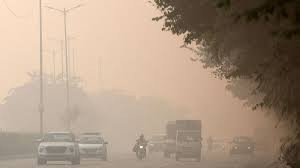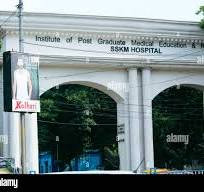India Reports 7,264 Active COVID-19 Cases, 11 New Deaths Recorded as of June 16 Morning
IIE DIGITAL DESK : India’s ongoing battle with COVID-19 continues with updated data released by the Union Health Ministry showing 7,264 active cases across the country as of 8 am on June 16, 2025. Over the previous 24 hours, the nation reported 11 new fatalities, pushing the total death toll from the virus to 5,33,504 since the pandemic began in 2020.
While the numbers remain relatively low compared to earlier waves, health authorities are maintaining a cautious approach due to a steady rise in sporadic cases reported from a few states. The Health Ministry confirmed that most new cases have been mild in nature, with very few hospitalizations, thanks to extensive vaccination coverage and better immunity among the population.
The current recovery rate stands at an encouraging 98.81%, with a total of 4,44,95,646 people having recovered from the virus so far. In the past 24 hours, 736 patients have recuperated, indicating that recoveries are still outpacing new infections. However, officials have warned that the virus remains unpredictable, and the public should not become complacent.
Among the 11 new deaths, states like Kerala, Maharashtra, and Delhi have contributed isolated cases, often among elderly patients or those with comorbidities. The Health Ministry has not reported any significant clusters or outbreak zones at this time, but testing and surveillance have been enhanced in districts that have shown a slight rise in test positivity rates.
India’s vaccination campaign continues to offer a strong defense against the virus. As of June 16, over 220 crore COVID-19 vaccine doses have been administered nationwide, with booster doses being encouraged, especially for vulnerable groups. Health departments in some states are also conducting special immunization drives for senior citizens and people with chronic illnesses.
In major urban centers, including Mumbai, Delhi, and Bengaluru, authorities have asked hospitals and local health centers to remain on alert and ensure adequate availability of isolation beds, oxygen supply, and antiviral medications. While there is no indication of a new variant causing concern, genome sequencing efforts are underway to monitor any potential mutations of the SARS-CoV-2 virus.
In Delhi, where the daily cases had briefly spiked in early June, numbers have now stabilized. The Delhi Health Department confirmed that daily case detections have fallen back to under 50 per day on average, and the city’s hospital bed occupancy rate for COVID patients is below 1%.
Public health experts continue to urge citizens to practice basic precautions, especially in crowded places and public transport. Mask advisories remain in effect for hospitals and clinics in many states. The Centre has reiterated the importance of hygiene, responsible travel, and timely testing for anyone showing symptoms like fever, sore throat, or persistent cough.
Union Health Secretary has emphasized that India remains well-prepared to handle any resurgence. “Our systems are robust. The healthcare infrastructure, including testing labs and vaccine logistics, has evolved significantly over the past four years. We are keeping a close eye on the situation,” he said during a press briefing.
Looking ahead, the government is also considering reintroducing regular COVID-19 bulletins on a weekly basis if there's any upward trend, though for now, daily reporting continues to track new cases, deaths, and recoveries.
While COVID-19 is no longer causing the widespread disruption seen in earlier years, the latest data highlights the need for continued vigilance. With global travel and interaction back in full swing, health officials stress that prevention, timely diagnosis, and vaccination are key to keeping the virus under control.
You might also like!


























